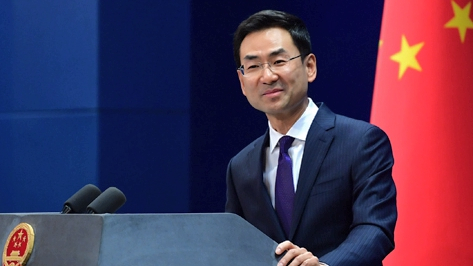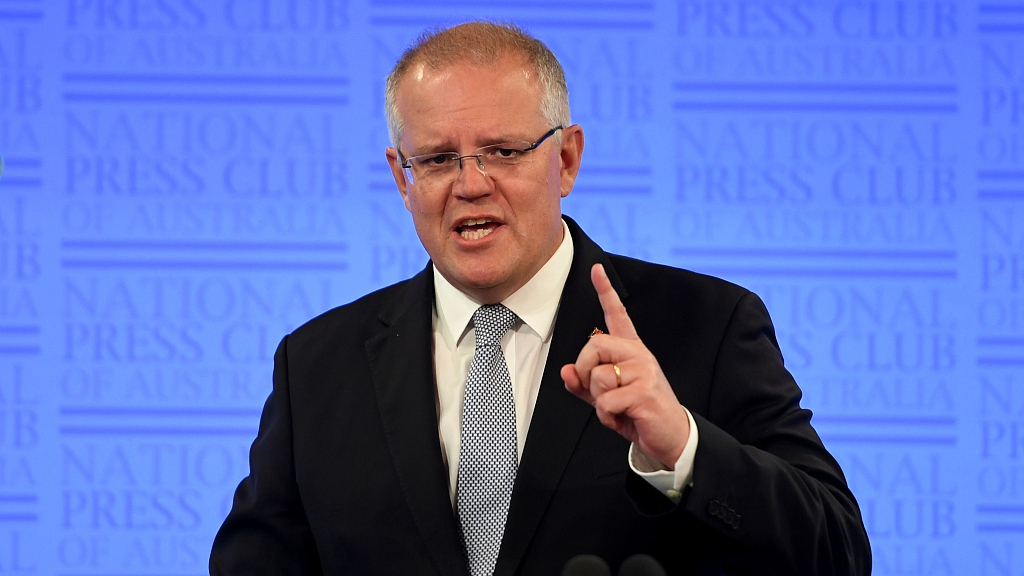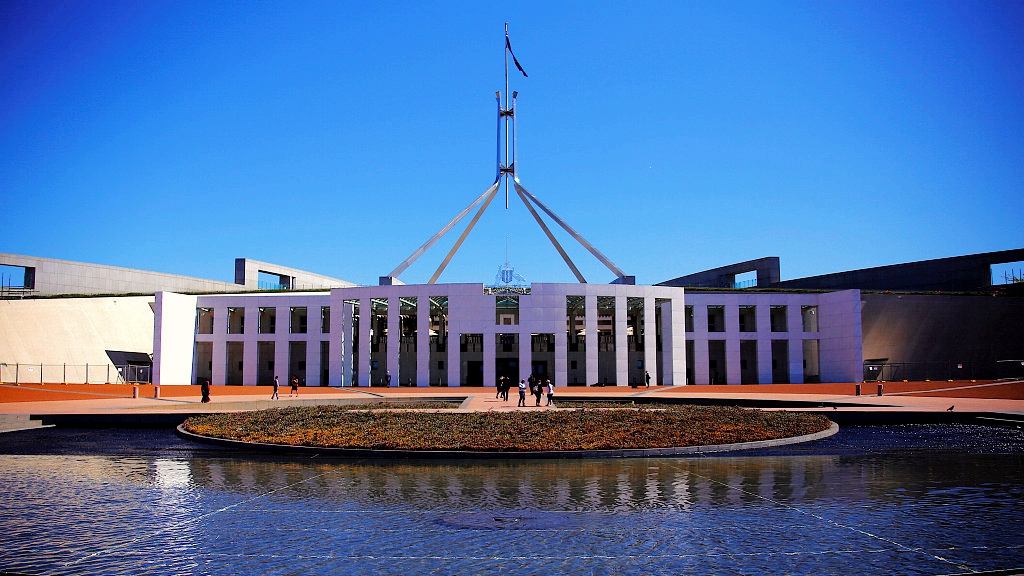
Asia Pacific
14:40, 19-Feb-2019
China dismisses claims linking it to Australia cyber-attack as ‘irresponsible’, ‘baseless’
Updated
15:38, 20-Feb-2019
By Abhishek G Bhaya

Beijing on Monday dismissed media reports that hinted China was behind a “sophisticated” cyber-attack on Australian political parties and parliament as “irresponsible” and “baseless”, saying such speculations were an attempt to “tarnish” China's reputation.
“China is firmly opposed to the reports made by certain media using cybersecurity issues to make unwarranted charges against China and mar China's image to serve their ulterior motives,” Chinese Foreign Ministry Spokesperson Geng Shuang told reporters in Beijing.
“We urge relevant media to stop tarnishing China's reputation by hyping up the so-called ‘cyber theft' and hacking attacks, and refrain from making remarks that undermine China's interests and its relations with the relevant countries,” he warned.
‘Sophisticated state actor'

Australian Prime Minister Scott Morrison speaks at the National Press Club in Canberra, Australia, February 11, 2019. /VCG Photo
Australian Prime Minister Scott Morrison speaks at the National Press Club in Canberra, Australia, February 11, 2019. /VCG Photo
Earlier on Monday, Australian Prime Minister Scott Morrison claimed that a “sophisticated state actor” had hacked the country's main political parties and parliament, without naming who that could be.
“Our cyber experts believe that a sophisticated state actor is responsible for this malicious activity,” Morrison told the Australian parliament while presenting the initial assessment by investigators. “We also became aware that the networks of some political parties, Liberal, Labor and Nationals have also been affected.”
The Australian prime minister did not reveal what information was accessed, but he said there was no evidence of interference in the federal election, which is due in May.
Australian security agencies, which are already investigating a breach in the parliament's computer network earlier this month, said they haven't yet identified the perpetrators of the latest cyber-attacks and weren't able to determine their motives either.
All parliamentary passwords were reset as a precaution after the reported breach.
“Investigators are still securing local networks, said Alastair MacGibbon, head of the Australian Cyber Security Centre, the government department responsible for online security. “Our political institutions represent high-value targets,” MacGibbon told reporters in Canberra on Monday.
“We will continue to work with our friends and colleagues, both here and overseas, to work out who is behind it and hopefully their intent,” he added.
‘Poisoning the atmosphere'

Tourists walk around the forecourt of Australia's Parliament House in Canberra, Australia, October 16, 2017. /VCG Photo
Tourists walk around the forecourt of Australia's Parliament House in Canberra, Australia, October 16, 2017. /VCG Photo
This didn't stop a section of the Australian media and analysts from insinuating that China, or to a lesser extent Russia, could be behind the cyber-attacks.
Saying that only “one or two actors” have the capability of carrying out such attacks, Fergus Hanson, a cybersecurity expert at the Australian Strategic Policy Institute, was quoted in several media reports as saying that he would put China "at the top" of the list of possible suspects.
“When you consider motivation, you would have to say that China is the leading suspect, while you wouldn't rule out Russia either,” Hanson said.
The Chinese foreign ministry spokesperson rejected such speculation as “baseless”, warning it could “heighten tensions” and “poison the atmosphere for cooperation.”
“With the cyberspace being a highly virtual one filled with multiple actors whose behaviors are difficult to trace, one should present abundant evidence when investigating and determining the nature of a cyberspace activity, instead of making baseless speculations and firing indiscriminate shots at others,” Geng said.
“Irresponsible reports, accusations, pressurizing and sanctions will only heighten tensions and confrontation in cyberspace and poison the atmosphere for cooperation,” he warned.
(Cover: Chinese Foreign Ministry Spokesperson Geng Shuang addresses a press conference in Beijing, February 18, 2019. /Photo via China's Ministry of Foreign Affairs)
1km

SITEMAP
Copyright © 2018 CGTN. Beijing ICP prepared NO.16065310-3
Copyright © 2018 CGTN. Beijing ICP prepared NO.16065310-3